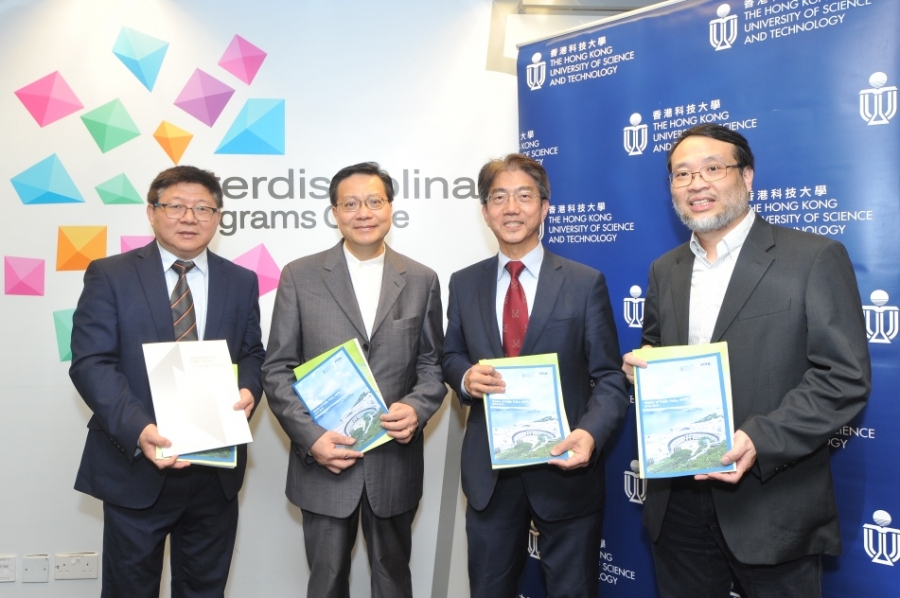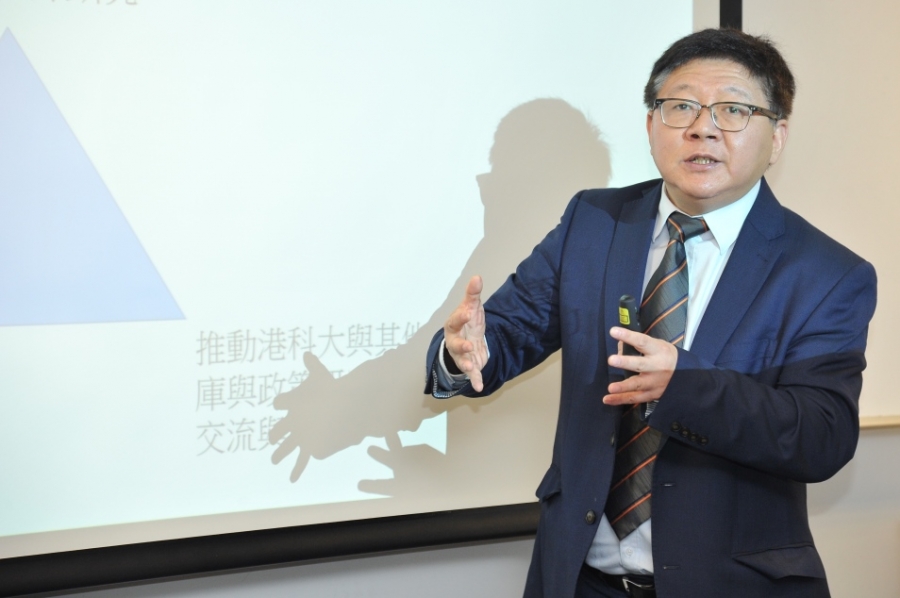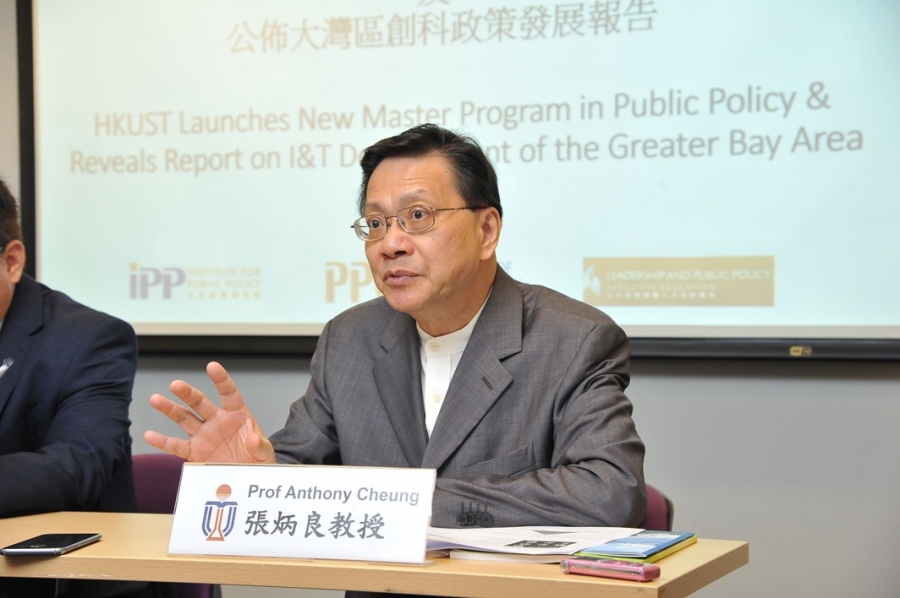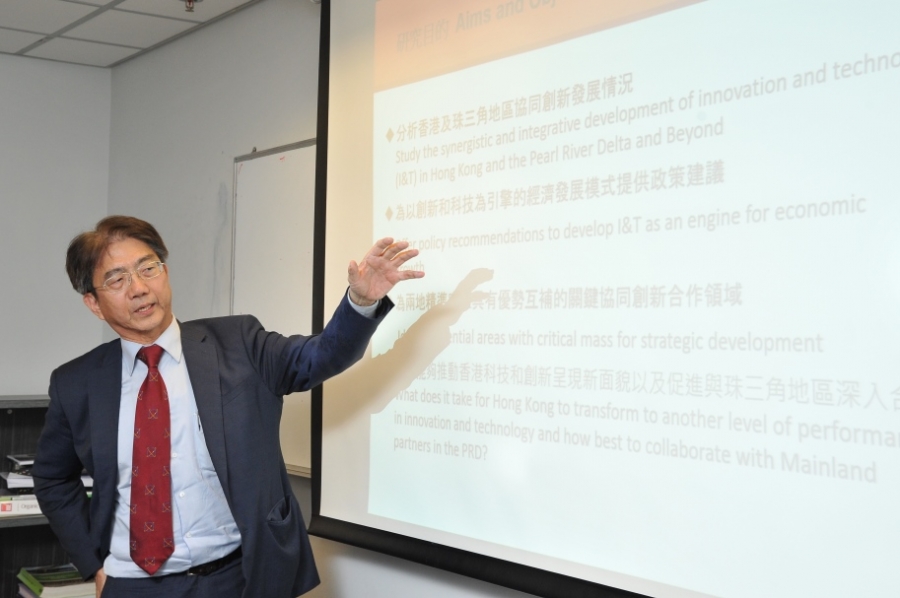The Hong Kong University of Science and Technology (HKUST) is pushing forward its public policy research and education as the Institute for Public Policy (IPP) published today the first report on the integrative development of innovation and technology (I&T) in the Greater Bay Area, and the University’s Division of Public Policy (PPOL) under Interdiscplinary Programs Office (IPO) is set to launch the city’s first two-year full-time taught postgraduate public policy program specialized in science, technology and environmental policy.
The latest research project – jointly conducted by Chinese Academy of Engineering, Hong Kong Academy of Engineering Sciences and IPP – has highlighted the risks faced by Hong Kong if we do not speed up in I&T, and made a number of suggestions on what the government should do. The report argued, for example, that the government’s laissez-faire policy is out-of-date, so it must take the lead with regard to R&D investment, training and policy development to foster I&T for small companies. The report also identified strategic areas that Hong Kong and the Greater Bay cities should strengthen collaborations in.
On the education side, starting September 2018, Division of Public Policy (PPOL) under Interdiscplinary Programs Office (IPO) is launching a new two-year full-time Master program in Public Policy (MPP), which offers not just solid knowledge on policy analysis using data analytics, but also leadership and management skills through internships and real-life practices in government agencies, non-profit organizations and private sector entities. The program also includes a client-based capstone project, where students will work in teams to find solutions for real-life challenges facing public and private organizations. MPP is the first two-year full-time postgraduate program in Hong Kong that allows students to focus on policy-making and analysis in science, innovation, technology and environmental sectors – all fast-rising fields in urgent need of a large amount of talents, amid opportunities posted by initiatives such as the establishment of the Lok Ma Chau Hi-Tech Park and the Greater Bay Area.
The degree requires the completion of 48 credit hours which are evenly divided between a core curriculum in public policy, and elective courses which allow students to broaden their perspectives by taking a diverse range of courses from the University’s five schools. An information session about the program will be held in HKUST Business Central on 21 May.
“While advancements of science and technology have been rapidly expanding the range of solutions for tackling global challenges such as climate change and ageing,” said Prof Xun Wu, Acting Head of PPOLwhere the program is offered. “Such innovative solutions have also given rise to a complex set of ethical, institutional and legal issues for governments, non-profit and private entities. Public policy will thus play an increasingly important role in unlocking the full potential of science and technology in improving our everyday lives and achieving sustainable development of our society.”
For program details and admission requirements, please visit: http://ppol.ust.hk/index.html
News Clippings:
SCMP
星島日報
新浪網
香港01
【大灣區】科大創科發展報告:香港優勢消失 「無為而治」不適用
大公報
明報
香港經濟日報
報告訴
World News
Public Now










